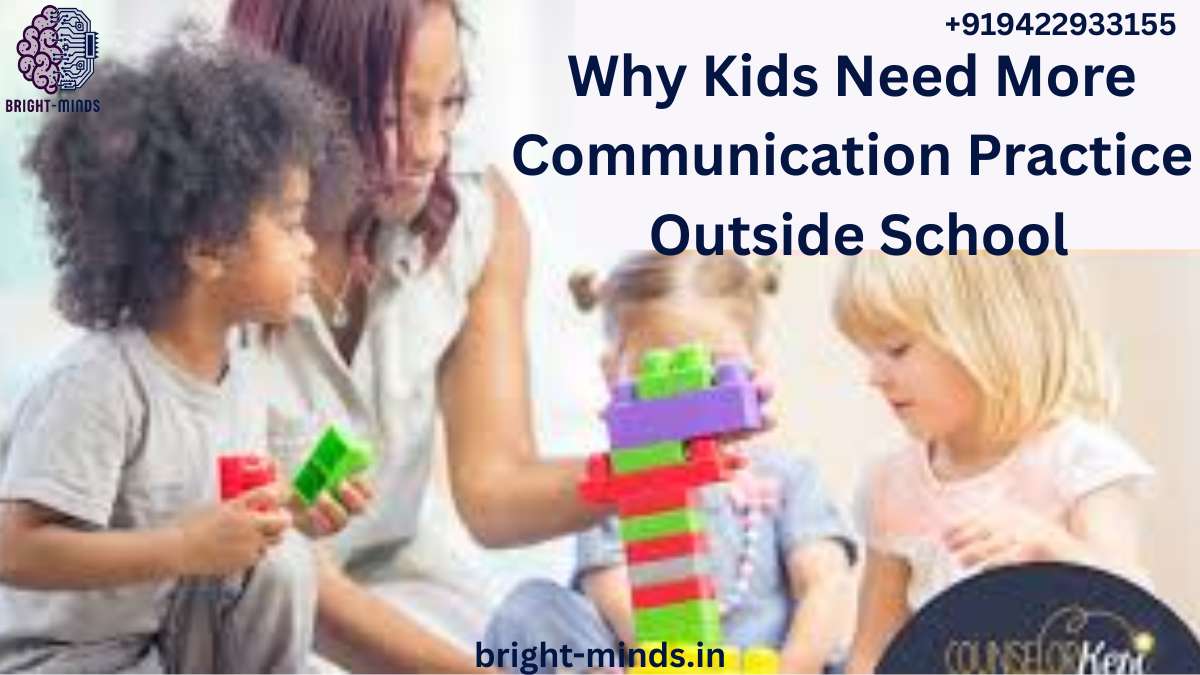In a world buzzing with digital interactions, quick messages, and screen-based learning, it’s easy to assume that kids are mastering communication just by being online. But here’s the truth: real, meaningful communication skills develop best through regular, intentional practice — especially outside the classroom.
Whether you’re a parent, a teacher, or a company employee in education or training, understanding why communication practice matters beyond school can make all the difference in a child’s academic and personal growth.
Let’s dive into why this is so important — and how you can help nurture confident communicators at home, in the community, or through your learning programs.
The Reality: School Isn’t Enough
While schools play a vital role in teaching reading, writing, and speaking skills, limited classroom time and growing curriculum demands often mean that interpersonal communication doesn’t get the focused attention it deserves.
According to research from the National Communication Association, students receive less than 10% of their instruction time on communication-specific skills — despite employers consistently ranking communication as the most in-demand soft skill.
So where does the rest of the practice come from?
➡️ Outside the classroom — at home, in social settings, during play, and in everyday conversations.
Why Communication Skills Are Foundational
Strong communication skills impact every area of a child’s life:
- ✅ Academic Success: Children who express themselves clearly do better on written assignments, oral presentations, and group work.
- ✅ Emotional Intelligence: Being able to articulate feelings helps children build empathy, resolve conflicts, and manage stress.
- ✅ Future Readiness: From job interviews to leadership roles, confident communication is key to long-term career success.
🧠 Fun Fact: Studies show that students who engage in regular conversation-based learning perform up to 30% better in literacy and comprehension assessments.
Industry Insight: What the Market Is Saying
The education and ed-tech industries are seeing a sharp rise in demand for communication-focused learning tools. Companies and curriculum designers are increasingly aware that literacy is no longer just about reading and writing — it’s about speaking, listening, and engaging.
📈 Key Trends:
- 🎙️ Speech and conversation-based learning apps (e.g., ChatterPix, Say It, or Speech Blubs) are gaining popularity.
- 🌐 Hybrid learning models are emphasizing social-emotional learning (SEL), which includes active communication skills.
- 🧑💻 Workforce development programs are investing in communication training for students and entry-level professionals alike.
For employees in education, publishing, or training companies, this presents an opportunity: design programs and tools that make space for real communication practice — not just content consumption.
Practical Tips: How to Encourage Communication Practice at Home
You don’t need fancy tools or public-speaking lessons to help your child develop strong communication habits. Here are some easy, real-life ways to boost communication outside of school:
1. Daily “Talk Time”
Set aside 10–15 minutes daily to simply talk. Ask open-ended questions like:
- “What was something funny that happened today?”
- “If you could build your own school, what would it be like?”
2. Storytelling Games
Create a story together, one sentence at a time. This builds vocabulary, structure, and confidence in speaking.
3. Role Play Scenarios
Pretend you’re ordering food at a restaurant or checking out at the store. Practicing real-life conversations prepares kids for social situations.
4. Record and Reflect
Record your child talking about a topic they love, then watch it together. This helps them recognize tone, clarity, and expression.
5. Encourage Eye Contact and Listening
Teach communication as a two-way street. Help your child practice listening respectfully and making eye contact during conversations.
Real-World Applications: Beyond Childhood
Strong communication skills aren’t just for school projects — they’re life skills.
🌍 In the Real World:
- A child who can explain their thoughts becomes an adult who can ace job interviews.
Also Read:
https://bright-minds.in/unlocking-word-meaning-for-class-ukg-english-to-hindi/

